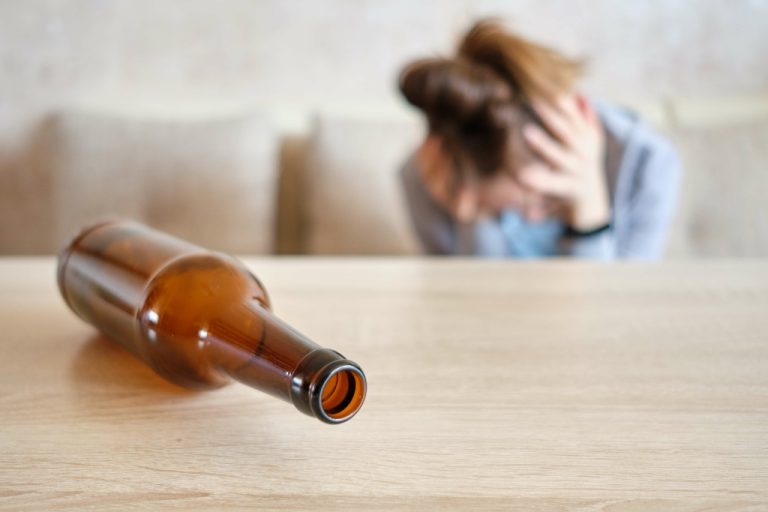It enhances communication skills, fosters healthier relationships, and allows a person to focus on personal and professional growth. For example, instead of turning to alcohol when feeling stressed or anxious, individuals in emotional sobriety might engage in physical exercise, seek treatment, or engage in creative pursuits. They let go of self-destructive thoughts and behaviors from their past and embrace http://blogrider.ru/blogs/214820/posts/id/9917199/best_diet_without_losing_your_beauty.php a healthier sense of self-worth, which is crucial for long-term emotional sobriety. And it’s that regulating behavior tied to emotions that’s such an important step even after becoming physically sober. Dr. Anand points out that there’s something of a phenomenon called “dry drunk,” in which a person is physically sober (or “dry”), but they’ve yet to come to embrace their emotions without substances.

The Bottom Line: Benefits of Sobriety and Recovery
- All Recovery accommodates people with any kind of addiction and its meetings are led by trained peer-support facilitators.
- To better understand emotional sobriety and its process, we spoke to psychiatrist Akhil Anand, MD, and addiction and substance abuse counselor Amy Fry, LISW.
- Design for Recovery provides structured sober living in Los Angeles, California.
- In Alcoholics Anonymous, members use the phrase “dry drunk” to refer to someone who has simply stopped drinking.
- Many people who misuse alcohol or drugs have trouble dealing with anger.
Some research postulates that relapses have three stages, and becoming aware of them helps you choose the best methods to maintain sobriety. If any area of your life is out of control, it will not help you maintain lasting sobriety. Consider reaching out to a vocational rehabilitation counselor or career coach to help you update your resume, practice job interview skills, and locate jobs that match your skills and experience.
Learning Center
In fact, many do not realize that there is a distinct difference between the two. What helped me the most was seeing a therapist who specialized in substance abuse. From her I learned the biological aspects of drug addiction and how it affects the brain. No matter how much my daughter wanted to quit, and professed she would, she couldn’t https://bernow.ru/pregnancy-planning/umer-li-lil-kto-takie-lil-repery-lichnaya-zhizn-lil-pump.html do it on her own. A gratitude journal can be a powerful tool in maintaining a positive outlook on your recovery journey. Celebrate your milestones by reflecting on your achievements and writing them down, documenting the support you’ve received from others, and noting the positive changes in your life since becoming sober.
- But cravings don’t last forever, and they tend to lessen in intensity over time.
- There are coping strategies to be learned and skills to outwit cravings, and practicing them not only tames the impulse to resume substance use but also gives people pride and a positive new identity that hastens recovery.
- When you get sober, and put down the drinks and drugs, you must heal all those broken pieces.
- Many people believe that they are powerless to change their own addictive behavior, and often it is a belief that keeps people addicted.
- Given that alcoholism is a chronic disease, sobriety can be viewed as the equivalent of a day without symptoms.
- While, technically, this could mean you simply haven’t had a drink or drug in a while, it normally means that you are not actively living a life where you drink or use a drug.
What’s the Difference between Sobriety and Recovery?

Though it may seem straightforward, the term sobriety is actually somewhat controversial in the field of addiction treatment. For some people, sobriety has a very narrow definition and refers to complete abstinence from all substances considered to be addictive, though this typically excludes both nicotine and caffeine. Many members of Alcoholics Anonymous (AA) define sobriety in this way, for example. These healthier coping strategies empower individuals to deal with their feelings positively and productively. It allows people to experience life’s ups and downs with resilience and positivity.
- The interview guide contained the main theme; how they conceived the meaning of being recovered or rehabilitated from their addiction.
- Apart from the occasional craving for illegal drugs and alcohol in controlled forms, the participants experienced their new life as non-addicts as a kind of freedom, for instance, from the fear of the police and criminal prosecutions.
- Areas of executive function regain capacity for impulse control, self-regulation, and decision-making.
- She told me my daughter was never going to be who she was before using drugs.
- There is hard data showing that the changes to the brain’s neurotransmitters and neural circuits that turn repeated substance use into addiction can be reversed after cessation of drug use, even in the case of addiction to methamphetamine.
- If you were active in your addiction for a period of time, you may have developed financial problems.
Sobriety vs. Recovery: What is The Difference?
Sobriety can be defined by focusing on its results and the means to reach them. As such, it implies mastering customized techniques to stop substance abuse and improving one’s physical and mental health. One common mistake for those who are new to alcohol http://www.mirea.org/tema/28-zabavnoe-v-seti/page-20 and drug recovery is substituting a new compulsive behavior for their old one. People new to recovery can find themselves approaching their new diet, exercise program, job, and even participation in support groups with a compulsion that echoes addiction.
- Most people who make their way into recovery have left a lot of pain and suffering in their wake.
- Individuals working toward recovery are going through positive changes to learn healthier coping skills.
- Shame is an especially powerful negative feeling that can both invite addiction in the first place and result from it.

Strictly speaking, sobriety is the state of being sober—not being under the influence of alcohol or drugs. However, the word is often used in different ways in different contexts. Many 12-step programs suggest that sobriety means total abstinence, which means never using the substance again.

